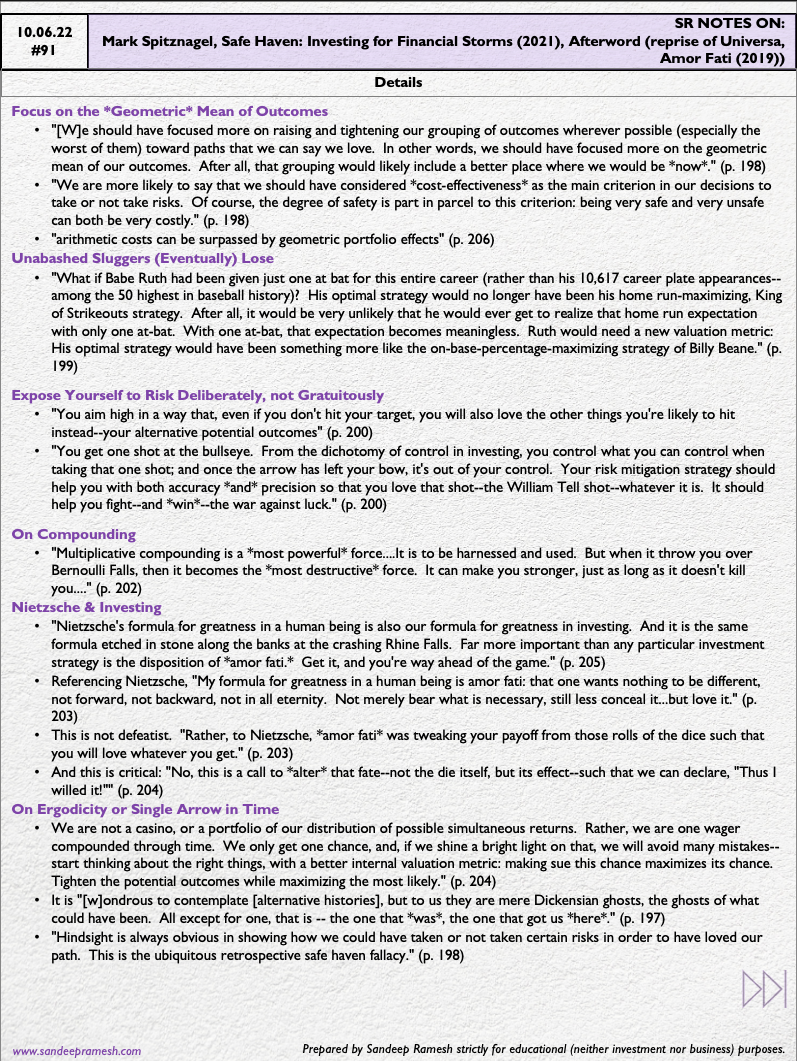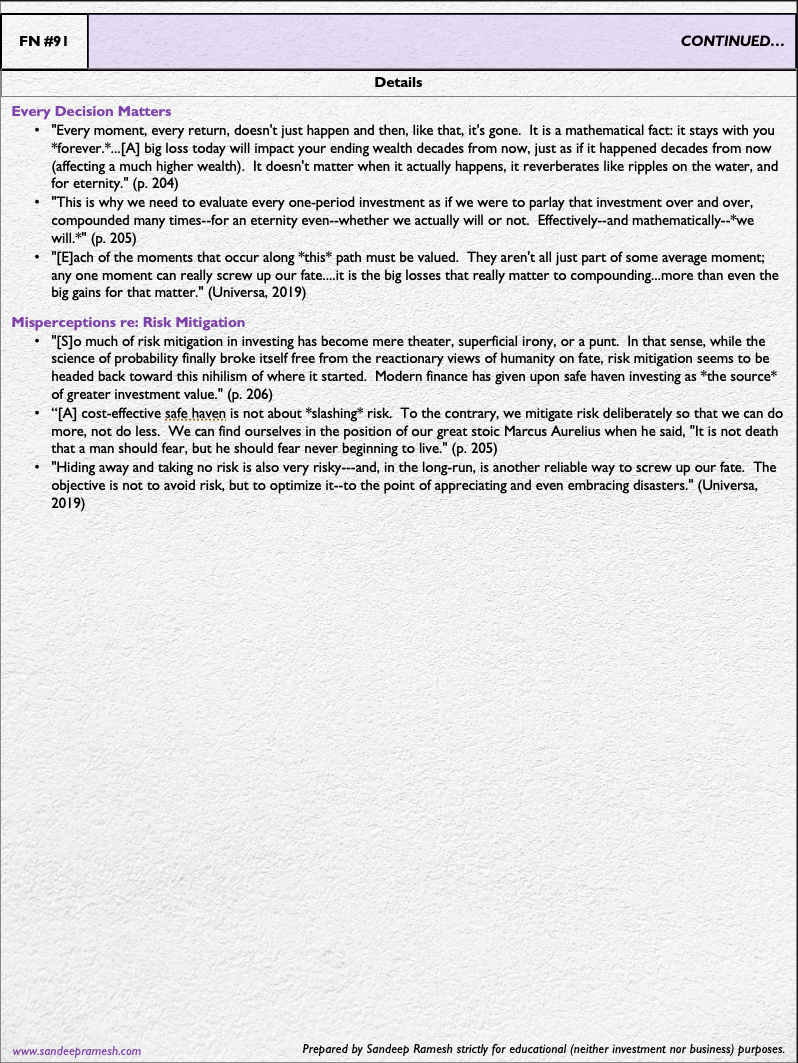Sources:
(a) Mark Spitznagel, Safe Haven: Investing for Financial Storms (2021); and
(b) Universa, Amor Fati (Jan. 2019), avail. online.
The Setting.
"Nietzsche's formula for greatness in a human being is also our formula for greatness in investing. And it is the same formula etched in stone along the banks at the crashing Rhine Falls. **Far more important than any particular investment strategy is the disposition of amor fati.** Get it, and you're way ahead of the game." (p. 205, emphasis added)
Thus spake Spitznagel.
Markets are fascinating as mirrors of one's own psyche and development. Perhaps this can be written off (instead of engaged with) as "too meta," but it strikes me as beautifully paradoxical that financial markets are comprised of distributed players & machines, but in the end, N always equals 1, and in my interactions with markets, I am actually seeing bits the reflection of myself (flaws and all).
Amor fati means to love one's fate such that "one wants nothing to be different, not forward, not backward, not in all eternity. Not merely bear what is necessary, still less conceal it...but love it." (qtd. Nietzsche).
Side note: There are echos of this notion in Camus's Myth of Sisyphus.
To underline the above, amor fati does not imply resignation, nor does it imply toleration. And this is critical: "No, this is a call to alter that fate--not the die itself, but its effect--such that we can declare, 'Thus I willed it!'" (p. 204, emphasis added)
My (Self) Investigation.
This philosophical and self-investigative musing arose after sitting with Spitznagel's Safe Haven text. A poignant chapter (the Afterword, which is a reprise of a 2019 essay, cited above) in his most recent 2021 text is captured* in this Field Note, which pairs especially well with Field Note #55: On "Intertemporal Investing Edge," a 2013 Spitznagel vintage.
Some additional ideas, inspired by my (re)reading today:
- On Uncle Points. Colloquially, an uncle point in the investing domain is the "give up" or "practical ruin" point. Stated differently, one's (personally calibrated) uncle point is the max loss one can incur, which likely has a higher trigger point in reality than in the abstract. Why? Perhaps we tend to overestimate the amount of courage we might have when staring into the uncle point abyss and/or perhaps we fail to imagine the failure cases properly due to the discomfort it presents.
(Side note: to what extent does the calibration of an uncle point change when one adopts a fiduciary responsibility to invest on behalf of others? The answer is not what it should be. Skin in the game is a corrective, but is principal financial alignment enough to solve for ethical alignment?) - Arithmetic Costs vs. Geometric Returns. Arithmetic costs < geometric portfolio effects
- Gratuitous vs. Deliberate Risk Taking. Expose yourself to risks deliberately, not gratuitously (👋 esp. crypto and early-stage venture dabblers)
- Ensemble vs. Time Probability (see, e.g., Field Note #62 with reference to Ole Peters & Ergodicity)
- Forget, but Ever-Ready. "[O]ur safe haven should let us forget that it is even there. It should let us go about our business, rain or shine, no matter what financial storms loom, allowing us to safely enjoy what remains of a beautiful day. It should allow us to weather any storm--including, just as importantly, none at all." (p. 207)
- Show Me Your Drawdown Records. Don't valorize "superstar" funds/investors (whose existence is amplified by social media distribution) based on single period "heroic" returns.
"Your big losses would have determined your rate of compounding and put you on a path that made you wish for a different one. But because you removed those losses cost-effectively, that has made all the difference." (p. 208)
⬆️ Re-read when operating in crypto and early-stage venture arenas.
* at times, like trying to grip soap in the shower; at other times, like trying to try up water with rope
The Clincher.
"There's only one question to ask when you make any investment decision. If I had to live with this forever, would I be capable of amor fati? If your answer is no, then you need to rethink your choices." (Universa, 2019)
The Details.

